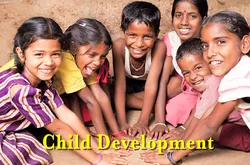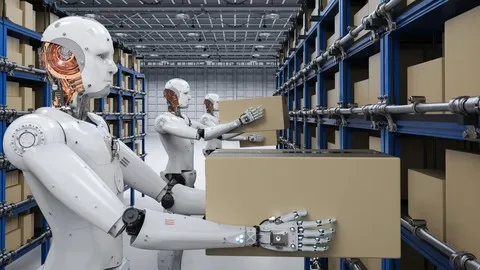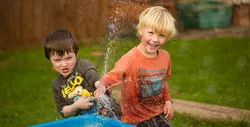
Child development 
This course provides an overview of the physical, emotional, language, cognitive, moral and social development of children from conception to adolescence. It also covers topics such as children with special needs, visual, hearing and intellectual disabilities, and their symptoms and causes. ▼
ADVERTISEMENT
Course Feature
![]() Cost:
Cost:
Free
![]() Provider:
Provider:
Swayam
![]() Certificate:
Certificate:
Paid Certification
![]() Language:
Language:
English
![]() Start Date:
Start Date:
Self paced
Course Overview
❗The content presented here is sourced directly from Swayam platform. For comprehensive course details, including enrollment information, simply click on the 'Go to class' link on our website.
Updated in [March 20th, 2023]
This course provides an overview of the physical, emotional, language, cognitive, moral and social development of children from conception to adolescence. It covers the different stages of development, as well as the challenges that may arise in children with special needs. The course will explore the symptoms and causes of visual, hearing, and intellectual disabilities, and how to best support children with these conditions. Additionally, the course will discuss the importance of providing a safe and nurturing environment for children to grow and develop.
[Applications]
This course provides a comprehensive understanding of child development and its implications for parenting, teaching, and other professions. It can be applied to a variety of settings, such as the home, school, and clinical settings. It can be used to inform parenting practices, to develop effective teaching strategies, and to provide guidance for working with children with special needs. It can also be used to inform policy decisions related to child development and to inform research in the field.
[Career Paths]
1. Child Psychologist: A child psychologist is a professional who specializes in the study of child development and behavior. They work with children and families to identify and address any issues that may be impacting a child’s development. They use a variety of techniques to assess and diagnose any issues, and then develop a plan of action to help the child reach their full potential. This field is growing rapidly as more parents and educators become aware of the importance of early intervention and prevention.
2. Child Care Worker: A child care worker is responsible for providing care and supervision for children in a variety of settings, such as daycare centers, preschools, and after-school programs. They are responsible for creating a safe and nurturing environment for children, as well as providing activities and instruction to help them learn and grow. This field is growing rapidly as more parents are looking for quality child care options.
3. Early Childhood Educator: An early childhood educator is responsible for providing educational and developmental activities for children from birth to age five. They create and implement lesson plans, assess children’s progress, and provide guidance and support to parents. This field is growing rapidly as more parents are looking for quality early childhood education options.
4. Special Education Teacher: A special education teacher is responsible for providing instruction and support to students with special needs. They create individualized education plans, assess student progress, and provide guidance and support to parents. This field is growing rapidly as more parents are looking for quality special education options.
[Education Paths]
1. Bachelor of Science in Child Development: This degree program provides students with a comprehensive understanding of the physical, cognitive, social, and emotional development of children from birth to adolescence. Students learn about the theories and research related to child development, as well as the practical skills needed to work with children and families. This degree is becoming increasingly popular as the demand for qualified professionals in the field of child development continues to grow.
2. Master of Science in Early Childhood Education: This degree program focuses on the development of young children from birth to age 8. Students learn about the theories and research related to early childhood education, as well as the practical skills needed to work with young children and their families. This degree is becoming increasingly popular as the demand for qualified professionals in the field of early childhood education continues to grow.
3. Doctor of Education in Educational Leadership: This degree program focuses on the development of educational leaders who can effectively lead and manage educational organizations. Students learn about the theories and research related to educational leadership, as well as the practical skills needed to lead and manage educational organizations. This degree is becoming increasingly popular as the demand for qualified professionals in the field of educational leadership continues to grow.
4. Doctor of Philosophy in Child Development: This degree program focuses on the development of children from birth to adolescence. Students learn about the theories and research related to child development, as well as the practical skills needed to work with children and families. This degree is becoming increasingly popular as the demand for qualified professionals in the field of child development continues to grow.
Course Provider

Provider Swayam's Stats at AZClass
Discussion and Reviews
0.0 (Based on 0 reviews)
Explore Similar Online Courses

SEO Foundations

Simple & Easy - Basics of Supply Chain Management (BSCM)

Python for Informatics: Exploring Information

Social Network Analysis

Introduction to Systematic Review and Meta-Analysis

The Analytics Edge

DCO042 - Python For Informatics

Causal Diagrams: Draw Your Assumptions Before Your Conclusions

Whole genome sequencing of bacterial genomes - tools and applications

Childrens perspectives on play

Child Development & Pedagogy

Kids with Cancer Still Need School: The Providers Role
 Related Categories
Related Categories
 Popular Providers
Popular Providers
Quiz
 Submitted Sucessfully
Submitted Sucessfully
1. What is the main focus of the course?
2. What type of development is covered in the course?
3. What type of children are discussed in the course?


Start your review of Child development